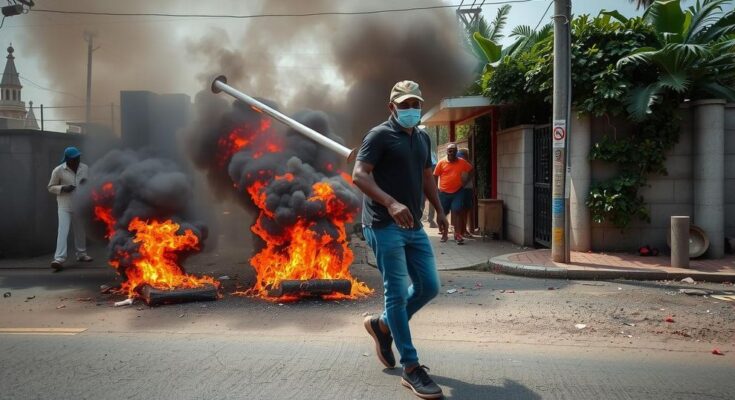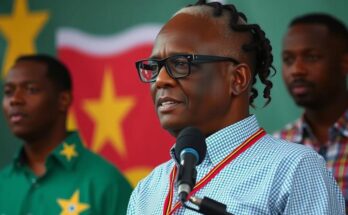Mozambique is facing escalating violence following disputed presidential elections, resulting in at least 90 deaths and significant detentions since October 9. Protests have resumed, causing further fatalities, especially during attempts to challenge local governance. Allegations of fraud from opposition leaders continue to fuel public dissent as the country approaches the inauguration of the new president.
Mozambique has experienced significant violence following the contentious presidential elections held on October 9, which resulted in the ruling Frelimo party maintaining its hold on power. According to the civil society organization Plataforma Decide, at least 90 individuals have lost their lives and approximately 3,500 have been detained in the turmoil that began thereafter. The situation ignited anew on Wednesday when protests erupted, leading to police intervention and further casualties, including five reported deaths from clashes between demonstrators and security forces.
Protests initially escalated when citizens attempted to storm the governor’s residence in the northern city of Nampula, prompting police to resort to live ammunition as a means of crowd control. The police spokesperson Orlando Modumane confirmed that the deceased included civilians who had suffered being run over or assaulted, with no fatalities among law enforcement personnel. As the Constitutional Council prepares to confirm election results ahead of the upcoming January inauguration of Frelimo’s candidate, Daniel Chapo, tensions remain high due to allegations of electoral fraud from the opposition party, particularly from Venancio Mondlane of the Podemos party, who asserts that his vote count was misrepresented by official reports.
This situation is exacerbated by continued unrest and dissatisfaction from the populace, with Mondlane voicing expectations of sustained protests despite the approaching holiday season. His comments reflect a broader sentiment among many who are unwilling to remain silent in the face of perceived injustices.
The turmoil in Mozambique highlights ongoing political unrest following the country’s recent elections. Historically ruled by the Frelimo party since its independence in 1975, the nation has witnessed increasing tensions as opposition parties contest the legitimacy of electoral outcomes. The notable victory claimed by Frelimo in October has been met with allegations of fraud, triggering widespread protests. The social climate, strained by government actions and responses to dissent, is marked by heightened conflict between citizens and security forces seeking to maintain order during a period of significant political transition.
In summation, Mozambique is grappling with severe post-election violence that has claimed many lives and led to widespread detentions. As citizens express outrage over the perceived irregularities in the electoral process, the potential for continued unrest looms large. The verification of election results and the actions of authorities in the coming weeks will be crucial in determining the nation’s path forward amid such tumultuous conditions.
Original Source: www.barrons.com



